Interview - Les Cadors : Interview with director Julien Guetta
By Mulder, 23 november 2022
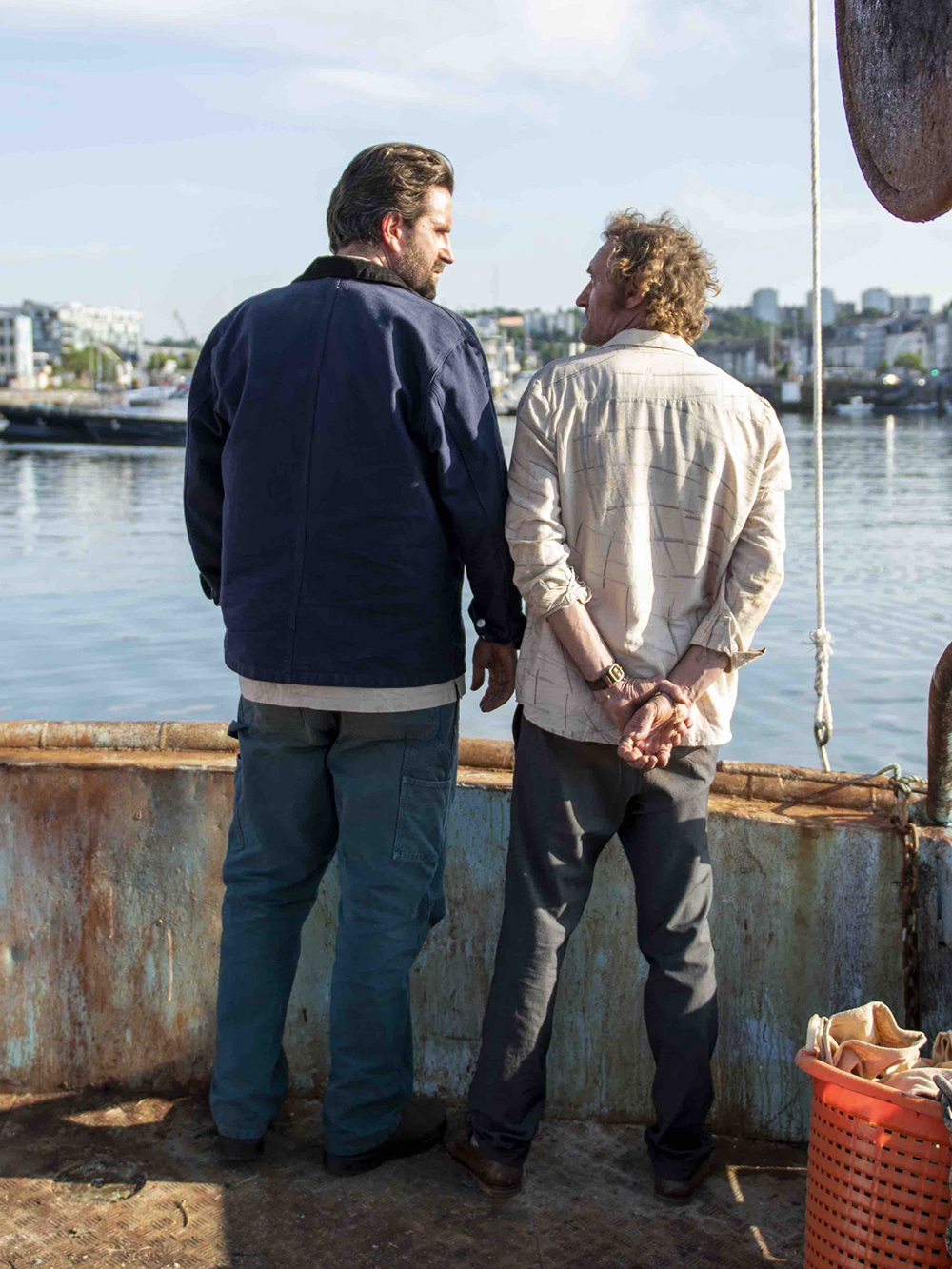
Les cadors is the second feature film co-written and directed by Julien Guetta after Roulez jeunesse (2018). The cast includes Grégoire Ludig, Jean-Paul Rouve, Michel Blanc, Marie Gillain, Aurore Broutin, Niels Hamel-Brochen and Roman Angel. The film will be released in France on January 11, 2023 and will be distributed by Jour2Fete.
Q: Les cadors is a film that navigates between comedy and drama, why did you choose to mix these two genres ?
Julien Guetta: I've been influenced by American cinema, which has mastered this mix of genres. What I like to do is to tell a seemingly simple story and make popular cinema: to make people laugh, to move them and at the same time, to use images that question the psychology of beings, the relationships between men and women. On the surface, LES CADORS is a light film, but in depth, it deals with real issues, and this is also why I had to anchor it in the very real and tangible professional world of dockworkers.
Q: This is the story of two disconsolate brothers, two vulnerable men, whom you film with tenderness.
Julien Guetta: The context of the film is that of the dockworkers, a very masculine and codified world in essence, but my characters are two men who have shaped themselves without having had any reference points in childhood. And I have, indeed, an infinite tenderness for them. The idea was to show how two men could build themselves without a female model, each in their own way. Antoine met a woman a little older than him and remained a big child all his life. Christian, on the other hand, is, underneath his gruff aspects, more fragile, more tender. And I like the awkward and caring relationship he can have with Madeleine. If you look closely, the story of my characters is terrible: their mother was beaten by their alcoholic father, ran away and, in fact, abandoned them. This is the basis on which I try to make people laugh and move!
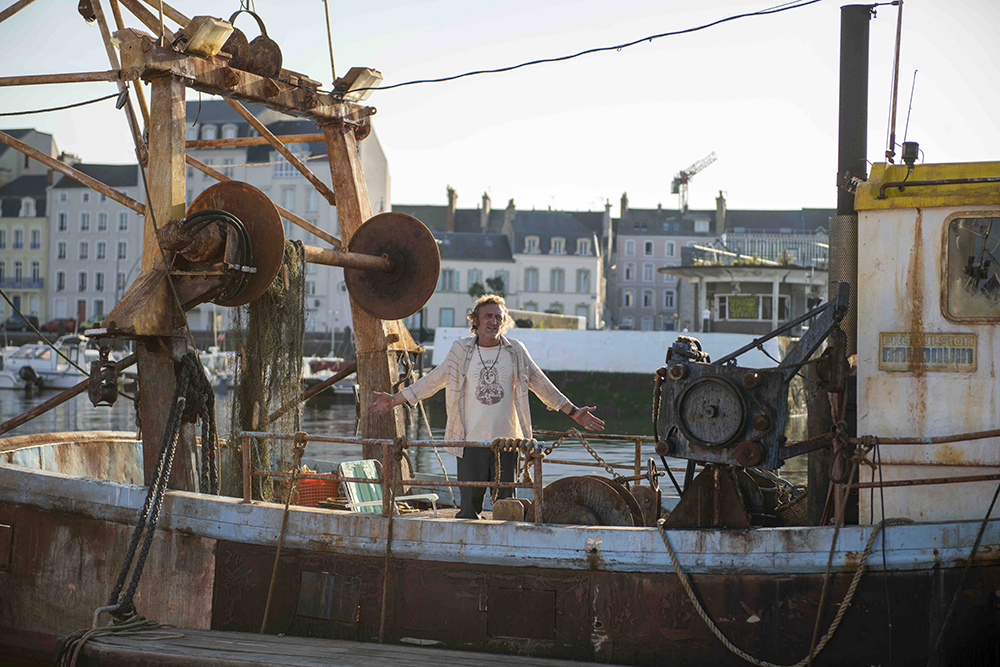
Q : One of the dramatic stakes of the film is to symbolically kill the father, this statue of the commander nicknamed "Terminator" by his children.
Julien Guetta: Absolutely, hence the fact that we see his son urinating on his grave. Christian thus manages to turn back the clock on the past. The big question of the film is: how do we detach ourselves from a past that has bruised us?
Q: Childhood can be seen as a sacred territory in this film. It is at this moment that the close bond that unites these two brothers was forged. the notion of territory, moreover, is symbolically represented on the floor with chalk in the bar where Christian sings Renaud at the top of his lungs...
Julien Guetta: The film is indeed very much linked to childhood and several scenes evoke this notion of territory, such as the scene of the containers when Antoine, as a child, finds himself locked up in one of them. In general, LES CADORS tells the story of a man who enters his brother's world, almost by breaking and entering, with the intention of settling down in his turn. The film goes back and forth between past and present. I liked the idea of playing with flashbacks, of finding ideas for staging that show us how events in the past echo what is happening in the present. Christian is having slapping contests in reaction to what he experienced with his father, Antoine wants to organize a perfect communion for his son to ward off the past. But history sometimes repeats itself, despite our good will. As long as we don't solve our problems, it can't work: that's the transgenerational aspect of the film.At the heart of the film, there is this idea of reproduction. The children in the film are observers of what their parents do and become susceptible to reproducing it.
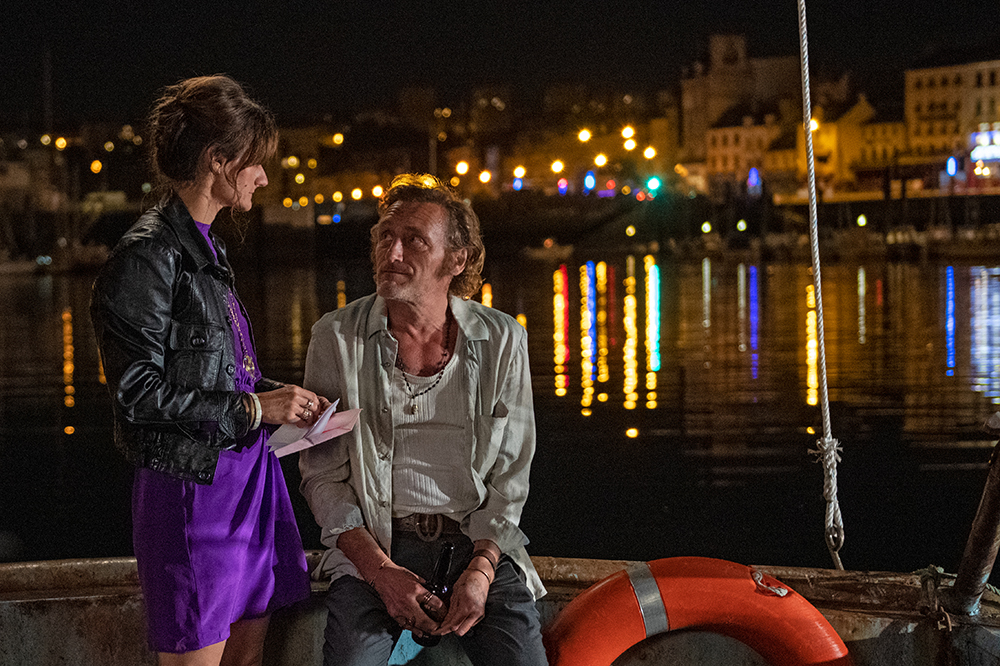
Q : Antoine is very proud of the dress he gives to his wife for this occasion...
Julien Guetta: It is typically the gift of a man in love and awkward: this dress is not appropriate for the occasion, but he gives it to her with such pride that it becomes touching. And I am moved by the idea that she wears it anyway to please him. It tells something of their story. My characters are really nice guys, struggling in a world of bullies! They are two men with sensitive hearts, not yet deconstructed, who make inappropriate gifts, for one, and poems, for the other, and find themselves in some crazy situations. That's what we like about duos: the more flaws they have, the more we get attached to them.
Q: Why did you choose the title Les cadors ?
Julien Guetta: It's ironic and tender at the same time. A cador in a soccer locker room is the idea of virility and strength. However, the film shows rather fragile and clumsy men who want to look good with a virilist image that is a little outdated. They cling to this image whereas one can also be a great man when one is sensitive, touching and sincere. I like this title a lot, because it has a 1980s and modern side at the same time.
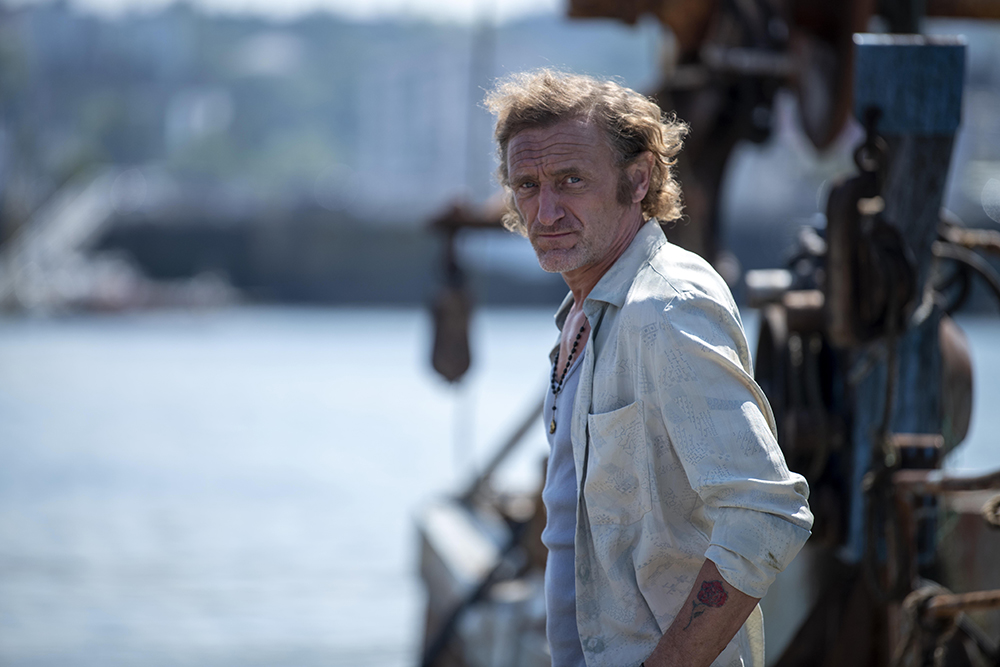
Q : There are many references to the 80's in the film.
Julien Guetta: Absolutely! This film is a tribute to the French cinema of the 1980s, these films of duets that I like a lot. There are a lot of references to 80's cinema. Christian is a bit stuck in those years with his Renaud tattoos, the way he dresses and the fact that Michel Blanc plays the villain, who played mythical duets from that period. He bridges the gap between my film and the films I take as references.
Q: The 80's are also very present in the film through the music, starting with Catherine Ringer who signs the end music.
Julien Guetta: Catherine Ringer did me the honor of signing the end music. I am a huge fan. I find her so strong and great. I also put some Philippe Lavil, some Renaud who remind me of those years. And then with Alex Beaupain, we worked on the sounds of the film so that they are subtly referential. It was a delicate balance to find, because this film plays on two tones, serious and light at the same time. We had to find the right tone for each scene, which was also valid for the music.
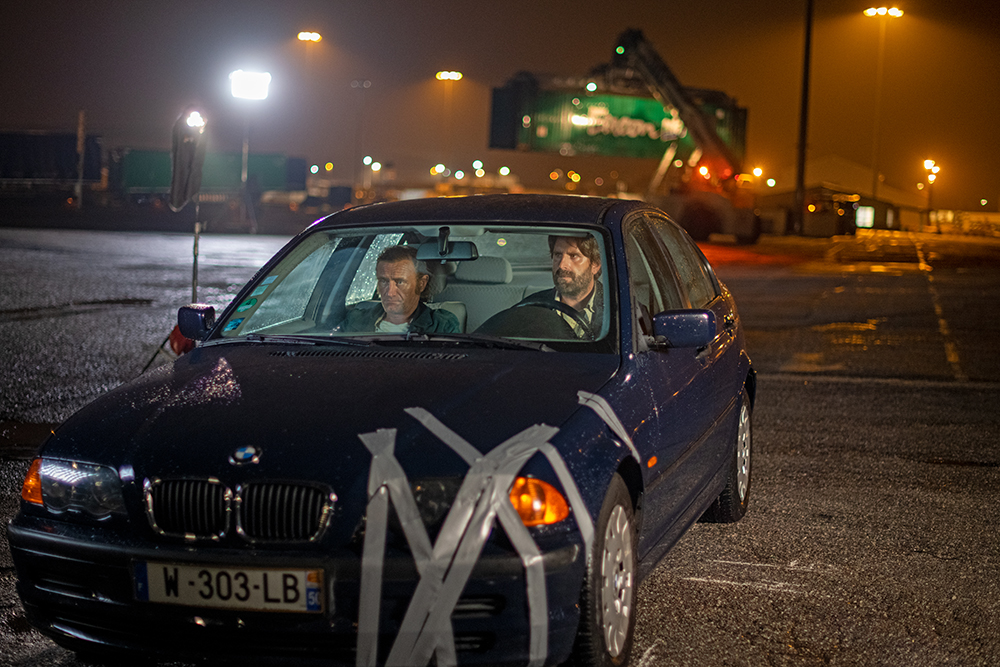
Q: The women in your film are dignified and hold their heads high in all circumstances.
Julien Guetta: The challenge of this film, based on a duo of men, was to make the women around them exist. The characters played by Marie Gillain and Aurore Broutin have temperament, and I wanted each of them to have a salient sequence in the film. I like the personality of Marie's character, whose gaze is never naïve. I also like the idea that Antoine lives with a woman a little older than him. It gives a certain modernity to this couple. Marie Gillain embodies something strong, sophisticated, right, and Aurore makes her character exist the second she appears on screen.
Q: Was there a genesis to this script ?
Julien Guetta: Lionel Dutemple, the film's co-writer, brought me this idea for a script in which he tells his personal story. Jean-Paul Rouve was associated with the project and as I like him a lot, that helped to seduce me. I liked this family story and the context of the dockers. I reworked the script to inject more humanity into the characters.
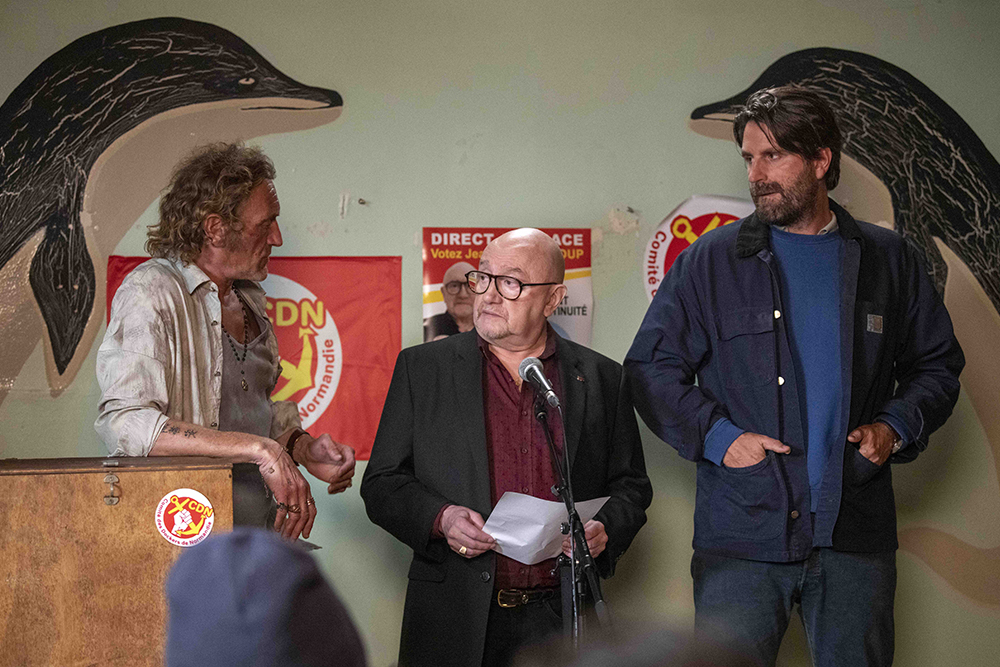
Q: How did you choose your actors ?
Julien Guetta: Jean-Paul Rouve was involved in the initial project and I was happy about that, because he can play anything. I like these rough-hewn actors, who are as comfortable in comedy as in drama. Jean-Paul is a great actor. Grégoire Ludig comes from comedy and my desire was to take him to another register. I find in him a De Niro side in The Deer Hunter, that is to say an unshakeable side, which observes what is played around him with all the possible courage. I find that he has a cinematic body. He occupies the space. He has a look that catches the eye. Like Michel Blanc, in his own way, who can embody a villain who changes in one look from a sympathetic character to a disturbing one. Both, like Marie Gillain, have a very strong sense of embodiment. Marie is a great actress, she gives off a great strength with a lot of sensuality that makes her very modern. As for Aurore Broutin, I liked her raw side, her voice so particular, she was perfect to embody a love duet with Jean-Paul. They form a couple with Popeye and Olive, which I like very much. We immediately believe in this couple that is created before our eyes.
Q: You also film non-professional actors among the dockworkers, who have striking faces.
Julien Guetta: That was the idea. We shot on the docks of Cherbourg and Rouen and as soon as I could film the faces of dockworkers, I did. I wanted this film to be part of a very real social world and this one particularly interested me, because it is little known and little represented in the cinema. It is very cinematic. The containers, the boats, all that brings adventure and I liked it a lot.
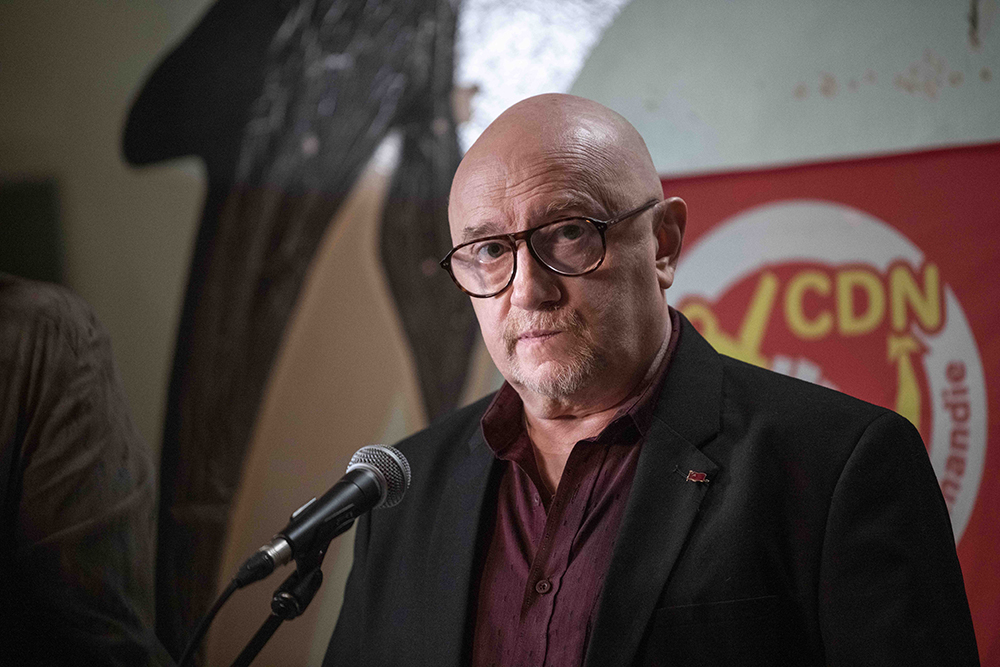
Q: How did you write your dialogues with Jean Paul Rouve ?
Julien Guetta: It's a chance to write the dialogues of a film with one of its actors. It allowed us to rehearse during the writing process. Between Jean-Paul and me, there was a real complicity. We worked hand in hand, and then, on the set, I found myself surrounded by authors, because Michel Blanc and Grégoire Ludig are also authors and their text proposals were formidable.
Q: How did you go about directing the film?
Julien Guetta: We decided to shoot in CinemaScope. It was justified here, because I wanted to work on the docks, and therefore on the space that extends to infinity, especially in the scenes where Christian is looking for Antoine in the middle of the containers. I wanted to give the film a western atmosphere at sea. This is reflected in the music. With Alex Beaupain, we were very inspired by the sounds of Morricone. I also like films that are always in motion and that's what I was looking for here. I like the stories to move quickly, as in my first film, and the duration of the whole is reduced to accentuate this sensation.

Q: Several rhymes structure the film.
Julien Guetta: We find this idea of echo, of the past and the present in dialogue. That's why the slaps, the communion, the siblings, the references to the 1980s, all work in rhyme. The world of the dockers is also interesting, because its iconography is made of these past images of men who load the boats, while its reality today is made of machines and metal, which is what I wanted to film. On a symbolic level, there is also the idea of the barge that goes up the river and through time. And to bring this to life, we also worked with my wife, who is an art director, to deploy the colors of the port and the containers in the film's sets. Hues washed by the sun and the sea combined with the primary industrial colors that bring dynamism and joy to the image.
Synopsis:
The story of two brothers that everything opposes. Antoine, married, two children, boat driver, and Christian, single, unemployed and incorrigible brawler. But when Antoine, the ideal husband, finds himself involved in a nasty affair, it is Christian, the unloved one, who, even though he has not been asked, comes to Cherbourg to rescue him. The Cadors, as they liked to be called in their childhood, will rediscover themselves through this story. Christian, who has nothing to lose, will defend at the risk of his life this family that he has always dreamed of having without ever having had the courage to found it.
The Cadors
Directed by Julien Guetta
Produced by Mathieu Ageron, Maxime Delauney, Romain Rousseau, Benjamin Morgaine and Lionel Dutemple
Written by Julien Guetta, Lionel Dutemple
Starring Grégoire Ludig, Jean-Paul Rouve, Michel Blanc, Marie Gillain, Aurore Broutin, Niels Hamel-Brochen and Roman Angel.
Music by Alex Beaupain
Cinematography : Philippe Guilbert
Edited by Grégoire Ssivan
Production companies : Nolita Cinema,
Distributed by jour2fête (France)
Release date : January 11 2023
Running time : 85 minutes
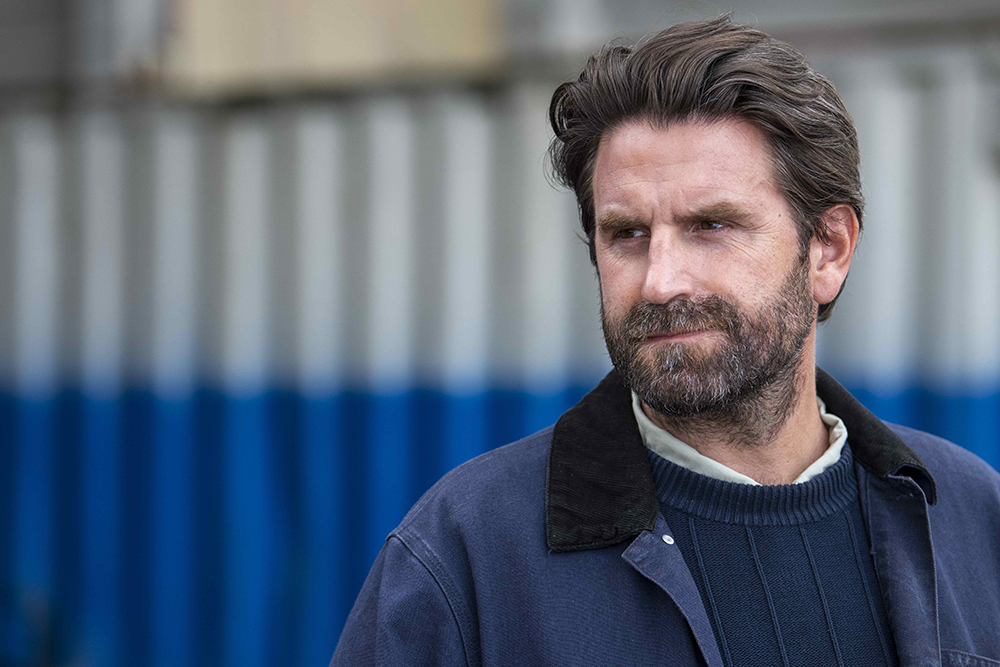
Photos : Copyright Nolita Cinema
(Source : Press kit)

